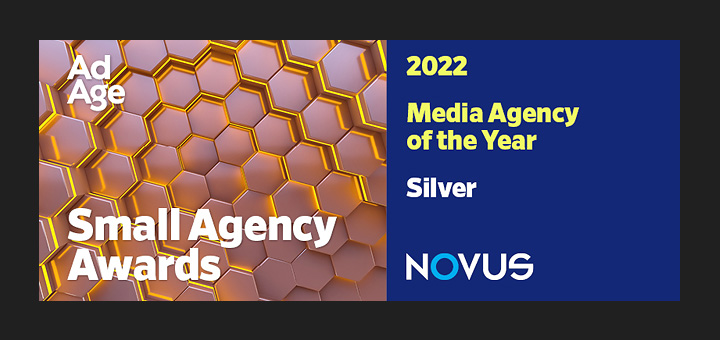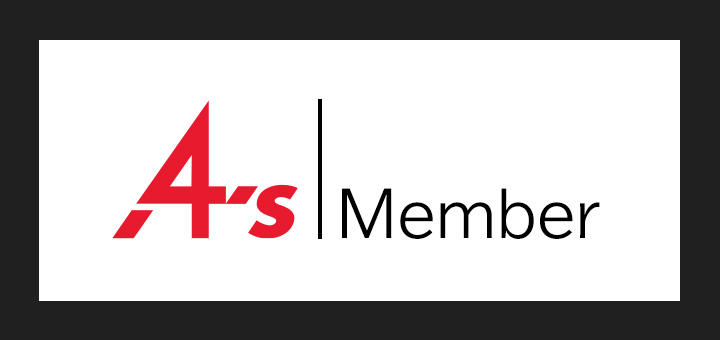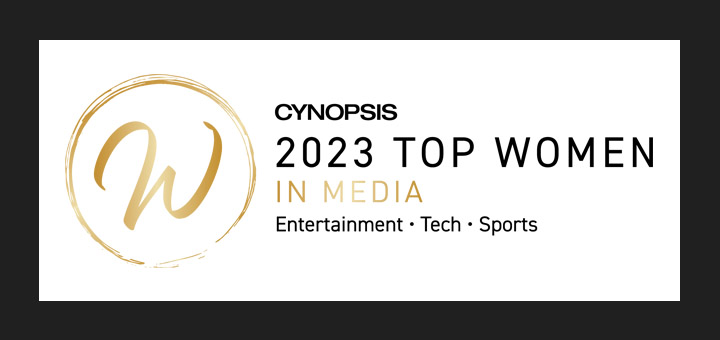Streaming and Social Media Have Helped Paris 2024 Win the Gold
After two COVID-impacted Games, the Olympics has broken viewership records for NBC and cemented its status as a must-watch event
Tokyo was dubbed the “first streaming games” by the International Olympics Committee. But Paris 2024 may be the first time the Olympics has actually moved past primetime. Thanks to streaming and social media, this year marks a shift from a largely broadcast and news media event to an all-encompassing global digital spectacle.
Heading into the final weekend the Games had been streamed for 23.5 billion minutes across all of NBCUniversal’s digital platforms — a streaming total that tops Tokyo 2020 and Beijing 2022 combined by 40%.
“Since the opening ceremony, we’ve been up hundreds of percent across video views, impressions and engagement,” Lyndsay Signor, SVP of consumer engagement for NBC Sports Group, told TheWrap. “We’ve blown the doors off of every metric that we set forth in terms of our benchmarks.”
On the social engagement front, Paris 2024 has produced 2.8 billion social impressions for NBC Sports, a 176% lift compared to Tokyo. In the first 13 days of the games, there were over 1.2 million posts on TikTok using #Olympics compared to the 71,700 posts using that hashtag during the first 12 days of Tokyo, an increase of 1,500%. And the official Olympics TikTok account has seen a 71% increase in followers during this year’s event, jumping from 8.5 million followers at the start of the games to 14.5 million.
“We have one of the most sophisticated examples of social media and the Olympics in this one,” Angela Schneider, director of the International Centre for Olympic Studies at the University of Western Ontario, told TheWrap. “[The Olympics was] sort of behind the curve before, and they’re really on top of it now.”
For example, right after the USA women’s teams took home the gold for basketball for the eighth time in a row, NBC Olympics’ X account posted a celebratory graphic that was liked over 13,000 times. A collection of photos of the Olympic athletes during the Closing Ceremony posted by the official Olympics account on Instagram saw over 350,000 likes.
Now NBCUniversal and companies that have benefitted from the Paris 2024 boost are planning to capitalize on the momentum heading into the Games in Milan and Los Angeles.
“We really looked towards Paris as an opportunity not only to really reimagine how we were going to market to consumers, but also how we could start to pave the way for the first games in the U.S. in a really long time,” Signor said.
While social media engagement helped reignite global interest in the Olympics, it could have a downside. The IOC is already struggling with fewer cities bidding on the Games because of the massive cost of hosting. Brazil spent $13.1 billion for the 2016 Rio Olympics and Paris likely just under $10 billion. The heightened potential for virality could further dissuade cities or countries that are not as open to so much scrutiny.
As much good press as Paris has received from hosting the Games, less glowing stories about the cleanliness of the Seine and complaints over the state of the Olympic Village have also been central to the coverage. A TikTok post from U.S. rugby player Ilona Maher about “cardboard” beds in the Village, which were a widely criticized part of making Paris 2024 the most eco-friendly Games to date, has been liked over 1.7 million times.
“It’s such a major task, and now, because of terrorism, security is required,” Schneider said of hosting the Games. “It’s daunting.”
A growing appetite for the Olympics
In many ways, the renewed interest in the Olympics is a reaction to the COVID-impacted Tokyo in 2021 and Beijing in 2022, where spectators were not allowed due to safety restrictions. “A lot of people said the Olympics were not going to survive COVID,” Schneider said.
Schneider likened the excitement around Paris to the London 2012 Summer Games, and at least in the U.S., the broadcasting numbers back her up.
The opening ceremony for Paris 2024 drew 28.6 million viewers across NBC and Peacock. That’s a 60% lift compared to the viewership Tokyo saw during its opening ceremony and an 8% increase compared to Rio de Janeiro in 2016. In fact, the only two recent Olympics that have surpassed Paris in that metric have been Sochi in 2014 and London in 2012. (Only Tokyo and Paris’ numbers include viewership from Peacock, which launched in 2020.)
Those numbers only grew during the competition. During its first five days, NBCU averaged 33.8 million viewers. The figure included viewership from the Paris prime (2-5 p.m. ET) and U.S. primetime (8-11 p.m. ET) time periods — a twofold primetime approach new to this year’s games — and included NBC, Peacock and other NBCU platforms. That early average makes Paris the most-watched Olympics in 12 years, second to London in 2012, which averaged 31.1 million viewers. Altogether, Paris 2024 averaged 30.7 million crossplatform viewers per day.
Paris itself was a major draw. The city provided an “alluring” backdrop for the games and some of the wealthier countries in competition, it was an easy-to-access location with a less daunting time zone difference.
The accessibility of streaming and the overall rise in women’s sports also boosted interest. “A lot of the U.S. star athletes this year are women, and that could not come at a better time,” said Shasta Cafarelli, SVP of media investment at Tinuiti. “The country has shown an affinity for these alignments that NBC has come out with, and I imagine it’s actually going to create a lot of excitement for 2028.”
The rise of social media
On July 29, U.S. gymnast Stephen Nedoroscik was resting with his eyes closed ahead of his event. That’s when Nedoroscik, aka Pommel Horse Guy, first caught the internet’s attention. NBC used socials to quickly capitalize on the newfound celebrity of the glasses-wearing athlete, letting viewers know more about the Olympian’s backstory and when they could expect to see him next.
Though Signor said that it’s “tough” to correlate moments like these directly to increased viewership, the consumer engagement team at NBC Sports is seeing “a long tail” on these types of viral moments. “What we really utilize social for is to prime the pump and then keep that going until the next moment happens,” Signor explained.
No Olympics is “apples to apples” because of the rapid growth of the digital landscape. Signor pointed to the Rio Olympics in 2016 as an example. It took place around the same time that Instagram launched its Stories function. “That obviously completely changed our strategy at the 11th hour,” Signor said.
So far NBC’s social strategy has paid off.
In addition to 2.8 billion impressions, Paris 2024 has produced 2 billion video views for NBC Sports and 135 million engagements, up 347% and 455%, respectively, from Tokyo. The network has also seen 3 million new social followers, including 1.6 million on TikTok alone. That is five times the follower growth of Tokyo.
On TikTok, 1.5 million posts are using #Olympics and more than 891,000 posts are using related hashtags. The platform even partnered with the IOC to launch an interactive hub for Paris 2024, which highlighted medal standings and the top videos on the platform. In exchange for following Olympic athletes or watching Olympics videos, users could collect cards and win prizes in a system that has contributed to the explosive interest the platform has seen.
“We’ve definitely learned that working with each important stakeholder in one way allows for all the content, fans and community to flourish on TikTok,” Rollo Goldstaub, TikTok’s global head of sports partnerships, told TheWrap. For TikTok, that meant partnering with the IOC and broadcasters, like NBC in the U.S. and Eurosport in Europe, as well as launching the curator hub and utilizing their team in the UK.
The IOC acknowledged the importance of social, releasing new guidelines at the start of the Games which allowed athletes to post content of up to two minutes from the Opening Ceremony and in the Olympic Village but did not allow posts from events.
NBC also invested more in content creators. The company’s influencer strategy started in Rio and morphed into the Paris Creator Collective. The partnership with Meta, Overtime, Snapchat, TikTok and YouTube paired 27 top creators with exclusive on-the-ground opportunities in Paris.
“We want to get literally everyone that we can,” Signor said. Though NBC didn’t set any specific KPIs for the program, the company is “really pleased” with what their group of creators produced.
By the midway point in the Games, the program generated over 200 million views across all platforms. Goldstaub also revealed that TikTok has benefited from the program, pointing to creators such as high diver Molly Carlson and pop culture influencer Asante Madrigal as “standouts.”
For example, a TikTok of Carlson eating the viral chocolate muffin from the Olympic Village scored 1.5 million, a pastry that became popularized by Norwegian swimmer Henrik Christiansen. An earlier post of Carlson crying while watching Celine Dion perform at the Opening Ceremony scored 2.7 million views.
A shift in advertising
“We were very curious to see if the [ad] demand would keep up with the viewership or if the viewership would actually allow for even more room from an advertising perspective, ” Cafarelli said, “and it has been the latter.”
She pointed to the many “Coverage will resume shortly” cards that appeared on Peacock’s stream of the Olympics as proof that NBC “has clearly knocked it out of the park.”
“Obviously, the numbers tell a really good story, and a lot of that growth is coming in streaming,” Cafarelli said. She also noted that the social content from Olympic athletes, fans and influencers has led to Paris 2024 feeling “much more personal.” “If brands can align themselves with personalities, almost like what NBC has done with Snoop [Dogg], they will benefit from that alignment as well as the increase in viewership.”
Rob Davis, president and Chief Marketing Officer of Novus, said his clients that invested in the Olympics across NBCUniversal’s platforms “love” what they’ve seen and that it’s “vastly exceeding performance expectations, certainly viewership expectations.”
“Frankly, the network is doing the job of aggregating [ad placement] on our behalf, and it’s an efficient way to buy. I mean, the Olympics isn’t especially efficient, but it’s a practical way to aggregate audiences,” Davis said.
Davis noted that the days of 3/4 of the country watching the same event are “probably gone.” “There’s a hunger for it from advertisers for getting a lot of eyeballs in a really timely, condensed time period,” Davis said.
Investing in Gen Z
The way Paris 2024 has taken off on social media also solves a major problem for the Olympics: getting Gen Z’s attention. To account for this complicated audience, NBC shifted its expectations to not focus solely on broadcast or streaming conversions.
“We do know that there’s a younger demo, particularly on TikTok, who maybe aren’t necessarily going to watch TV or maybe don’t have a TV,” Signor said. “Part of the goal with them is really the longer game. How do we get the Olympics into their newsfeed?”
To that end, one of NBC’s partners in its Creator Collective is the sports media company Overtime, which caters to a predominantly Gen Z audience. With roughly 80% of its audience in the 18 to 34 age range, Overtime prides itself on creating viral moments, like when one of its journalists interviewed gold medalist Olympic swimmer Katie Ledecky about her photo as a toddler in 2001 with NBA legend Michael Jordan. The video has been seen over 5.3 million times on TikTok and is one of several Overtime posts from the Olympics that has reached over a million views.
“Our engagement rate is effectively double what we expected it to be,” Rich Calacci, Chief Revenue Officer of Overtime, told TheWrap.
Calacci called Overtime’s partnership with the Creator Collective, which started about a year and a half ago, “a really good blueprint” for partnerships of this type moving forward.
The Olympics itself has pivoted to this younger demographic by including sports such as skateboarding and breaking, which had its inaugural year in 2024. “You don’t need a lot of expensive equipment to do them, and so they’re more accessible,” Schneider said. Breaking in particular led to its own share of viral moments.
From the Creator Collective to NBCU’s Fortius program, which helps build the social followings of a select group of Olympians, Signor sees the investments her team has made in Paris 2024 as a starting point before they “really raise the bar” for Milan–Cortina d’Ampezzo in 2026 and Los Angeles in 2028.
“The Milan Cortina is a little bit more spread out than Paris in terms of getting folks up to a mountain or down into Milan, so we will need to think logistically how we would need to adjust,” Signor said.
As for LA, the team is already preparing for an Olympics that will feature an abundance of celebrities and influencers.





